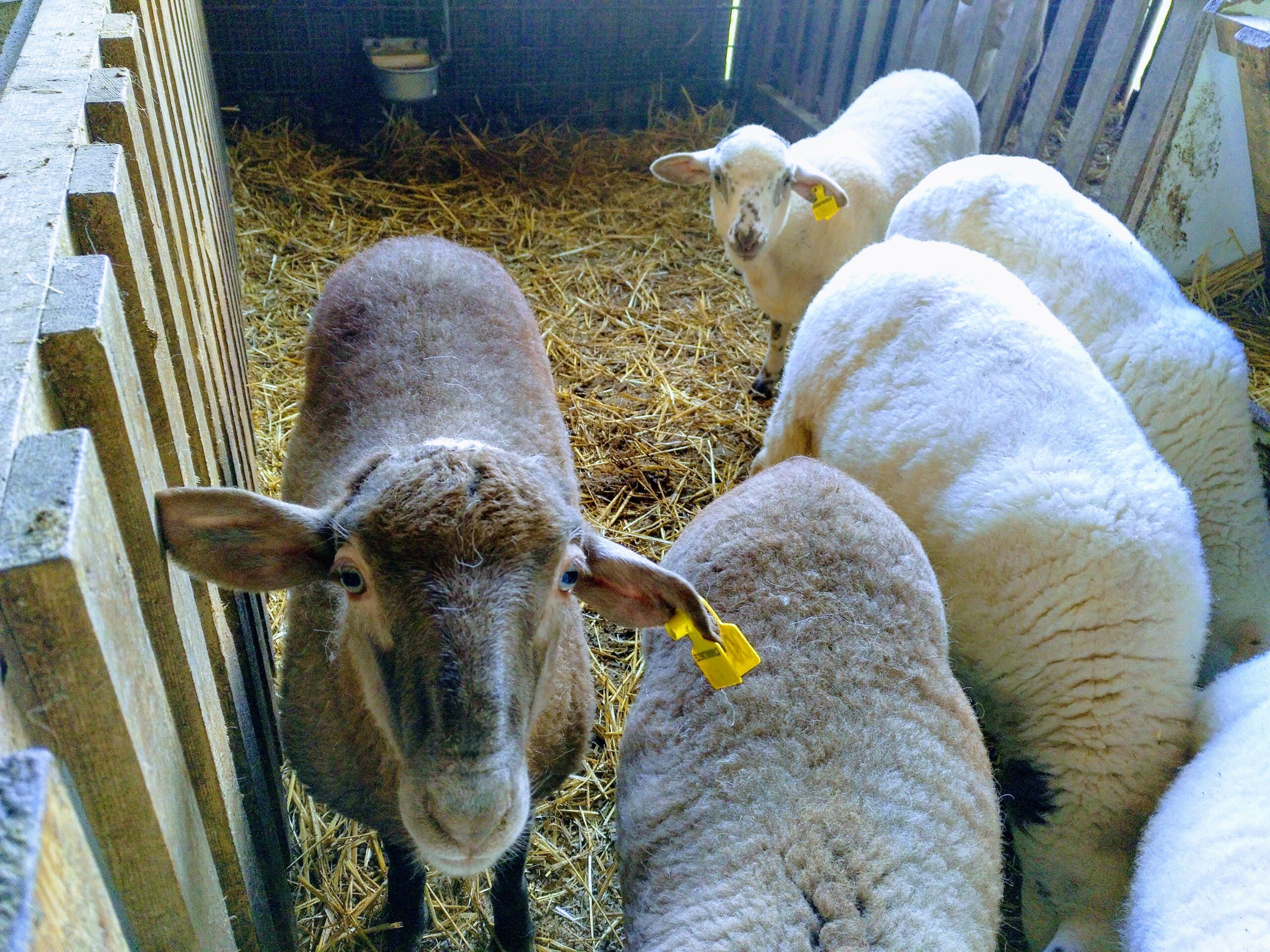A study led by PhD student Jonathan Pelegrin-Valls and supervised by Javier Álvarez, from the Department of Animal Science of the University of Lleida (DCA-UdL) and Beatriz Serrano, from the DCA-UdL and member of the animal nutrition and environment research group of Agrotecnio-CERCA, shows that carob pulp has an immunomodulatory and antioxidant role in the gastrointestinal tract of lambs, improving their gastrointestinal health and limiting the possibility of suffering certain parasitic diseases.
In a context of climate change in which animal nutrition is facing major challenges, carob pulp is an interesting alternative to other diets that improve productivity but can lead to metabolic disorders such as rumen acidosis. Carob (Ceratanoia siliqua L.) is a tree native to the Mediterranean basin, of which Spain is one of the main producers. Carob pulp is considered an agricultural waste and can be used in livestock farming as a source of condensed tannins for the diet of ruminant animals, as tannins have nutritional, productivity and health benefits.
The objective of the research was to evaluate the effects of carob pulp in the diet, as well as the impact of heat on the gastrointestinal health of lambs and their susceptibility to parasitic diseases such as coccidiosis. Three groups of lambs were fed one of the following types of diet: no carob pulp, 150 grams of carob pulp per kilogram of feed and 300 grams per kilogram of feed.
Intensively reared lambs are prone to colonisation by coccidia, parasites that develop in the small and large intestine and reduce the weight gain of the animals and thus the productivity of the farm. In addition, the heat stress experienced by the animals during warmer seasons influences, among other things, gastrointestinal homeostasis, altering the functioning of physiological mechanisms. The study proposed feeding carob pulp as a possible solution to both problems, both to control coccidiosis and heat stress.
Over a period of six weeks after establishing three groups of lambs with their three diets differentiated in amount of carob pulp, samples were taken from all animals. Their growth was not affected by the type of diet, but faecal and blood analyses showed better gastrointestinal parameters of those lambs that took carob pulp.
These analyses showed that there is no interaction between diet and season in this respect: lambs under heat stress showed lower growth rate and poorer overall gastrointestinal health parameters. However, the inclusion of carob pulp in the diet of the animals, either 150 or 300 grams per kilogram of feed, improved the gastrointestinal health of the lambs, although it did not counteract the harmful effects of heat.
More information:
Pelegrin-Valls, J., Álvarez-Rodríguez, J., Martín-Alonso, MJ., Aquilué, B., Serrano-Pérez, B. (2023) “Impact of carob (Ceratonia siliqua L.) Pulp inclusión and warm season on gastrointestinal morphological parameteres, immune-redox defences and coccidiosis in concentrate-fed light lambs”, Research in Veterinary Science, Vol. 163
